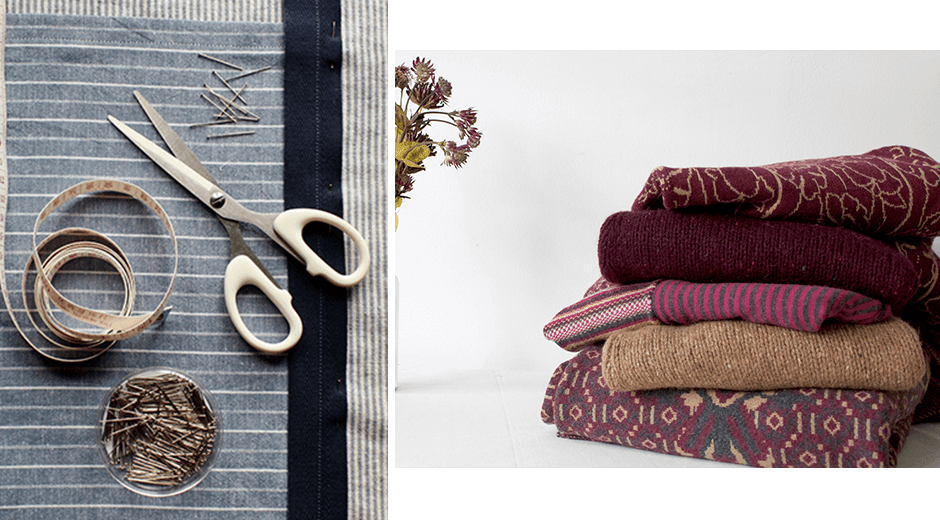
Hannah’s Conscious Shopping Tips
I must admit; I used to be a sucker for the sales. At this time of year, we’re surrounded by them. With bargains left, right and centre they are sometimes difficult to resist – even for the most ethically conscious. Before joining Braintree Clothing I was far less aware of my shopping habits and the detrimental effects that they had. But whilst nobody’s perfect (I still get sucked in by the occasional bargain here and there), it’s important to remember how your consumption effects our world, and that shopping more consciously is vital for the future of fashion. Our mantra here at Braintree Clothing is ‘Wear Me, Love Me, Mend Me, Pass Me On’. It’s all about looking after the clothes you buy, to ensure that they last longer. Conscious shopping doesn’t just apply to clothing either; we should be more thoughtful when buying food produce too. So, here are some top conscious shopping tips to help you on your way to buying better this year. Maybe it could be your New Year’s Resolution!






My Top Conscious Shopping Tips
1. Buy second hand
Buying used goods whenever possible helps reduce the effects on the environment of manufacturing and transporting goods, and also reduces the amount of waste we produce.2. Buy less: quality over quantity
Even if it means you might pay a little more, make sure you buy things that are well-made, durable and that can last – this will actually save you money in the long run. Our throw-away culture is also having a detrimental effect on the environment, with an estimated £100 million worth or around 350,000 tonnes of used clothing going to landfill every year! So before you buy in the sale, take a moment to consider the cost per wear: will you wear it 30 times or more? Will you own it for years? Will you be bored of it after one month’s use?
3. Buy recycled/ recyclable/ refillable
Although you might think you’re ‘doing your bit’ by recycling your rubbish, the process isn’t complete until someone buys or uses the recycled goods. Make sure you look for common recycled items like paper, toilet rolls or bin bags. You can also simply Google ‘recycled gifts’ and you will find some more inventive ideas for recycled goods online.4. Buy from ethical companies
As a producer of slow fashion, we make clothing to last and although you might pay a little more, our garments will certainly not be something you chuck at the end of a season. You can visit our Thoughtful Supply page on our website to find out about where and how our clothes are produced. Also, read our Animal Welfare Policy by visiting our Thoughtful Way page. It’s relatively easy to see whether other corporations are profiting from less acceptable practices like labour exploitation, or unethical wages. Many companies produce a CSR (corporate social responsibility) report, but it’s often better to look at ethical comparison websites, or publications.
5. Buy Fairtrade
Fairtrade was initiated in the 1980’s, and is when companies in developed countries pay fair prices to the producers in less economically developed countries, ensuring that they have better working and living conditions, promoting better environmental standards and raising levels of social awareness. When you buy Fairtrade goods you are supporting the less privileged communities that are generally at a disadvantage to wealthy world merchants and consumers, who usually dictate pricing to such an extent that many producers struggle to make any profit.6. Buy organic
Organic foods are produced without the use of chemical fertilisers, pesticides or other artificial chemicals such as antibiotics or growth hormones, and are therefore much better for you and the environment.
7. Buy local
Buying locally produced foods help support your local community and also avoids the high carbon footprint of imported foods. Goods produced further away may also have non-obvious social or environmental impacts such as unfair working conditions or pollution that locally produced goods don’t have.8. Buy seasonal
Imported food not only has a higher carbon footprint, but also tends to have more packaging and uses more pesticides or preservatives to keep its natural/ fresh appearance. Make sure you have a seasonally varied diet to avoid these effects, and consume a more varied range of foods throughout the year. Hopefully these conscious shopping tips have given you more of an insight into how easy it is to buy well, with as little environmental and social effect as possible. For more information on how to prolong the life of your clothing or put them to the best possible use when parting with them, check out our thoughtful shopping after care tips. If you have any thoughtful shopping tips of your own then feel free to comment below!

